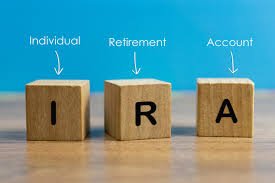Saving for retirement is crucial, and choosing the proper retirement account can significantly affect your financial future. There are several types of Individual retirement accounts, each with its advantages. This article explores the benefits of these various Individual retirement accounts to help you make an informed decision. What Are the Advantages of Different Types of IRA Accounts?
Understanding Traditional Individual Retirement Account
Traditional IRA accounts are a popular choice for many investors. Contributions to these accounts are often tax-deductible, meaning you can reduce your taxable income for the year you contribute. The money in a traditional IRA grows tax-deferred, so you will only pay taxes on the earnings once you withdraw them during retirement. This can benefit individuals who expect to be in a lower tax bracket when they retire, as they may pay less tax on their withdrawals different types of IRA accounts.
Exploring Roth IRA Benefits
Roth IRAs offer a different set of advantages. Contributions to Roth IRAs are made with after-tax dollars, so they are not tax-deductible. The key advantage is tax-free withdrawals in retirement, which primarily benefits those expecting higher future tax rates. Additionally, Roth IRAs do not have required minimum distributions (RMDs), allowing the account holder to leave the money invested for as long as they like.
SEP IRA: Ideal for the Self-Employed
Simplified Employee Pension (SEP) IRAs are designed for self-employed individuals and small business owners. One primary advantage of SEP IRAs is the high contribution limit, which is significantly higher than traditional and Roth IRAs, which allows business owners to contribute more to their retirement savings. Contributions are also tax-deductible, and the funds grow tax-deferred until withdrawal.
According to SoFi, “If an individual is the owner of the business and contributes a certain percentage of their compensation to their own SEP IRA —for example, 15%— the amount they contribute to their employees’ plans must be the same proportion of the employees’ salary.”
SIMPLE IRA: A Simplified Plan for Small Businesses
Savings Incentive Match Plan for Employees (SIMPLE) IRAs tailored for small businesses with 100 or fewer employees. These accounts are easy to set up and administer, making them an attractive option for small business owners. Both the employer and employee can contribute to SIMPLE IRAs. Employer contributions mandatory and can made through matching contributions or a fixed percentage of compensation, providing a consistent boost to the employee’s retirement savings.
Self-Directed IRA: Greater Control and Flexibility
Self-directed IRAs offer the most flexibility in terms of investment options. Unlike traditional and Roth IRAs, self-directed IRAs allow investments in a broader range of assets, including real estate, private equity, and precious metals. This type of IRA suits investors who want to diversify their portfolios beyond the typical stocks, bonds, and mutual funds. However, managing a self-directed IRA requires more knowledge and due diligence to ensure compliance with IRS regulations.
Inherited IRA: Continuing the Legacy
Inherited IRAs, or beneficiary IRAs, set up for individuals who inherit an IRA from a deceased account holder. The primary advantage of an inherited IRA is that it allows beneficiaries to continue benefiting from the tax-advantaged status of the original account. Depending on the relationship to the deceased and the type of IRA inherited, beneficiaries may have various options for taking distributions, allowing them to manage their tax liability effectively.
Conclusion
In conclusion, different IRA types offer unique benefits: traditional IRAs provide tax-deferred growth, Roth IRAs allow tax-free withdrawals, and SEP IRAs have high contribution limits. Choosing the right one for your situation can maximise your retirement savings. Consider exploring options or consulting a financial advisor to meet your retirement goals.


